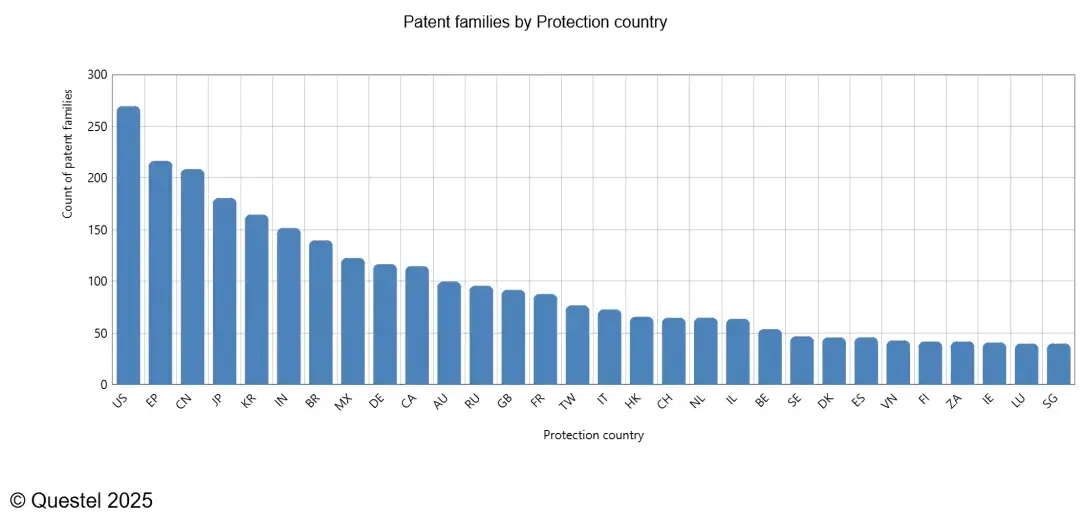Vikrant Rana, Renu bala and Huda Jafri
A major intellectual property battle is unfolding in the U.S. solar industry. On April 1, 2025, First Solar, Inc., a U.S.-based leader in thin-film photovoltaic (PV) technology, accused Mundra Solar PV Ltd. (MSPVL), a key subsidiary of the Adani Group, of infringing two of its U.S. patents relating to Tunnel Oxide Passivated Contact (TOPCon) solar-cell technology. The dispute is being heard in the U.S. District Court for the District of Delaware, a jurisdiction increasingly favored for complex patent litigation.
At stake is not only the validity and scope of two important patents but also the commercial future of Indian solar exports to the U.S., a market where Indian manufacturers have enjoyed a competitive advantage due to trade policy exemptions from tariffs imposed on Chinese imports.
This case illustrates the strategic significance of Freedom to Operate (FTO) searches and comprehensive IP due diligence for companies entering IP-intensive foreign markets such as the United States.
Case Timeline
- April 1, 2025: Demand Letter: First Solar formally alleged that MSPVL was infringing two of its US patents relating to high-efficiency solar cell production.
- April 15, 2025: Pre-emptive Action: MSPVL filed a Declaratory Judgment action for non-infringement (Case No. 1:25-cv-00462), asserting that its manufacturing process is materially different from First Solar’s patented methods, particularly by omitting the heat-treatment step, which is central to First Solar’s claims.
- August 1, 2025: Counterclaim Filed: First Solar filed a patent infringement counterclaim, demanding a jury trial and seeking monetary damages (amount yet to be disclosed).
Patents at Issue
-
- U.S. Patent No. 9,130,074 issued September 8, 2015.
- U.S. Patent No. 9,666,732 issued May 30, 2017.
Both patents originated with TetraSun Inc., which First Solar acquired in 2013. They cover innovative TOPCon solar-cell structures designed to enhance energy conversion efficiency and improve manufacturing yield.
MSPVL’s Defence
MSPVL asserts that its manufacturing process is non-infringing, citing multiple technical distinctions from First Solar’s patented process, the most notable being the complete elimination of the patented heat-treatment phase.
- The company argues that these differences are substantial enough to place its operations outside the scope of the asserted patent claims.
- It has asked the Delaware court for a declaration affirming that no infringement has occurred.
Trade Context
This litigation is taking place against the backdrop of global trade protectionism in the solar sector:
- The U.S. has imposed tariffs of up to 50% on Chinese imports of solar cells, modules, and polysilicon to counter alleged dumping and state subsidies.[1]
- Indian solar exports remain exempt from these tariffs, creating a strategic advantage for Indian companies such as MSPVL.
As a result, Indian manufacturers have been able to:
- Command higher profit margins in the U.S. by combining competitive pricing with tariff-free access.
- Gain market share as U.S. developers diversify away from Chinese suppliers.
- Benefit from “China+1” procurement strategies that favor non-Chinese sourcing.
However, this advantage could be neutralized if the Delaware court rules against MSPVL. Potential consequences include:
- Injunctions or import bans under U.S. law, including possible proceedings before the U.S. International Trade Commission (USITC) under Section 337 of the Tariff Act.
- Royalty or licensing obligations, eroding tariff-driven profit margins.
- Damage to buyer confidence, pushing U.S. utilities to seek alternative suppliers.
Broader IP Enforcement Landscape
The case is part of a broader global wave of solar patent litigation:
- In February 2025, First Solar sued JinkoSolar in Delaware over the same U.S. Patent No. 9,130,074.
- In March 2024, Maxeon Solar Technologies sued Canadian Solar over comparable high-efficiency cell technology patents.
- First Solar has also sent warning letters to major solar players, including LONGi Solar and Trina Solar.
This signals an aggressive enforcement campaign to protect proprietary TOPCon technology worldwide.
Intellectual Property (IP) Due Diligence
Launching a product in a new market, especially a highly regulated foreign market, such as U.S., EU, or China is quite challenging. Before commencing businesses, a company must complete several pre-entry requirements including an IP due diligence. This helps minimize legal risks, ensure compliance, and maximize market success.
This includes:
- Freedom to Operate (FTO) Search: Identifying any granted patents that the product to be launched may infringe. Early identification of potential patent conflicts avoids costly post-launch disputes. The product may be redesigned, or other approaches may be considered, such as licensing or changing the market, etc. Knowing the competitor and their products and patents is very crucial in designing the marketing strategies.
First Solar, Inc. is a leading Solar thin film PV module manufacturer in US and also has global presence in different countries including India, Singapore, Frankfurt, Mexico, Malaysia and Vietnam.
Patents filed in Solar cell technology
Tunnel Oxide Passivated Contact
- Trademark Clearance: ensuring that the brand name, logo, or slogan does not infringe existing trademarks.
- IP filing: filing patents, designs and trademark applications in the countries of interest to protect IP rights.
Importance of Freedom to Operate (FTO) Search
This dispute underscores why companies entering IP-heavy markets must conduct a Freedom to Operate (FTO) search:
- Risk Identification: FTO searches reveal whether existing patents in the target market might cover aspects of the company’s products or processes. Early identification allows redesign or alternative strategies before launch.
- Avoiding Costly Litigation: The expense and disruption of post-launch patent litigation, especially in the U.S., can far outweigh the cost of upfront due diligence.
- Licensing and Negotiation Leverage: Where conflicts are unavoidable, FTO analysis provides a basis for early licensing negotiations or cross-licensing arrangements, often at lower cost than litigating.
- Strategic Market Entry: In highly regulated jurisdictions such as the U.S., EU, or China, FTO searches enable informed decision-making about where and how to deploy technology.
- Doctrine of Equivalents Risks: Even if a company avoids literal infringement by altering a patented step, as MSPVL claims by omitting heat treatment, U.S. courts apply the Doctrine of Equivalents. If a process achieves substantially the same function in substantially the same way to yield the same result, infringement may still be found.
Legal Takeaways
- Conduct FTO Searches: Entering the U.S. market without a detailed FTO analysis exposes companies to high-stakes patent litigation.
- Pre-emptive Litigation Strategy: MSPVL’s decision to file a declaratory judgment suit illustrates how companies can try to seize the procedural initiative.
- Patent Enforcement: With solar patent disputes spreading worldwide, multinational players must treat IP risk as a core business issue, not a legal afterthought.
- Doctrine of Equivalents: Process modifications may not guarantee safety from infringement if courts find functional overlap.
Conclusion
This case highlights the intersection of intellectual property law, international trade policy, and renewable energy markets. Beyond its immediate commercial impact, the case underscores the strategic importance of IP due diligence, particularly FTO searches for companies seeking to enter highly regulated and IP-intensive markets.
As the solar industry races toward next-generation efficiency, patents are becoming as valuable as production capacity. For Indian solar exporters, the outcome in Delaware will serve as a pivotal precedent, shaping both market access strategies and IP compliance frameworks for years to come.
This article was first published on Bar and Bench




